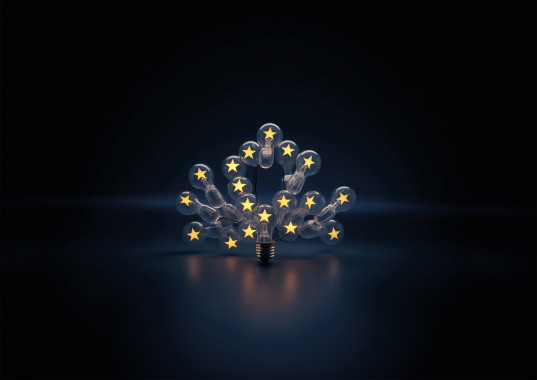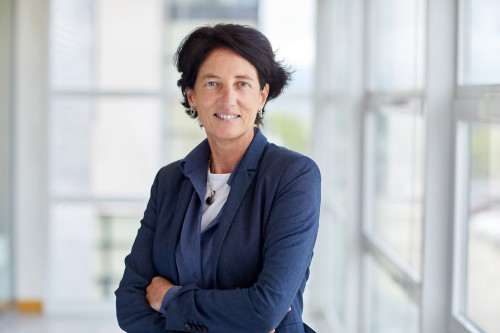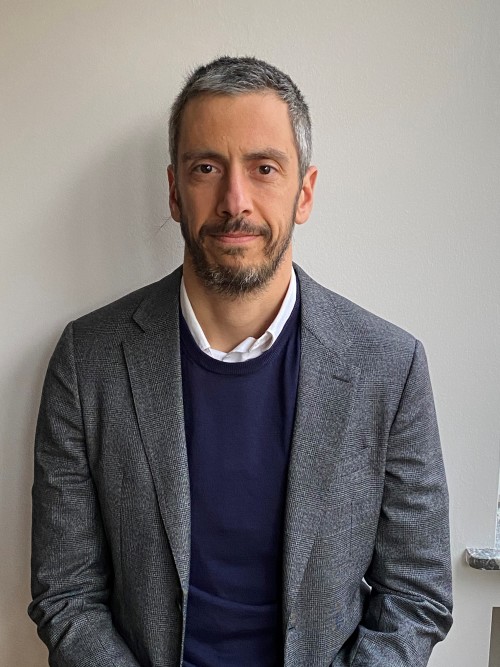Brussels Is Innovating Support for Deep Tech
on
 Europe is known to have excellent scientists, but when it comes to bringing ideas to market, other world regions are leading. To overcome this, the European Innovation Council (EIC) was founded in 2021. I travelled to Brussels to speak with Isabel Obieta (EIC Programme Manager for Responsible Electronics) and Francesco Matteucci (EIC Programme Manager for Advanced Materials for Energy & Environmental Sustainability) about how the EIC is supporting ethical innovation.
Europe is known to have excellent scientists, but when it comes to bringing ideas to market, other world regions are leading. To overcome this, the European Innovation Council (EIC) was founded in 2021. I travelled to Brussels to speak with Isabel Obieta (EIC Programme Manager for Responsible Electronics) and Francesco Matteucci (EIC Programme Manager for Advanced Materials for Energy & Environmental Sustainability) about how the EIC is supporting ethical innovation.
Priscilla: What is the European Innovation Council?
Francesco: The EIC was born in 2021 from the desire to overcome the European paradox. In Europe, we have the best scientists in the world, but not the best scientific entrepreneurs. We are a one-stop-shop agency, which means we fund the innovation journey from ideation to marketing of our deep-tech innovators via three main funding schemes: Pathfinder, Transition, and Accelerator, including the EIC Fund, which makes equity investments in beneficiary companies. There are two types of calls in the EIC: One is open for all kinds of deep-tech proposals and the other is based on the challenges identified and supported by the Programme Managers.
European Innovation Council — Total Budget, 10.1 Billion Euros
“Europe’s flagship innovation programme to identify, develop, and scale up breakthrough technologies and game-changing innovations” with three funding schemes:
- Pathfinder: research and deep tech projects with a high degree of scientific ambition and risk — up to 4 million euros per project.
- Transition: maturation and validation of novel ideas from lab to business — up to 2.5 million euros per project.
- Accelerator: supporting SMEs to develop and scale up to new markets or disrupt existing ones — up to 2.5 million euros per project.
Priscilla: What do you do as a Programme Manager?
Isabel: We each have our own background and bring our own vision to the EIC. It is not we who decide what gets funded, but our challenge is to find companies around the world that we think are relevant and connect them. In Pathfinder, I try to follow twenty projects, in Transition, I follow five or six, and in Accelerator, around ten. I really want to get to the basics of electronics and change how devices can be produced in a more sustainable way, so I feel that I need to go deeper into the beginning of the story.

Francesco: We are part of the community of our topic, and we help the community grow and strongly innovate and bring out the socioeconomic impact. We stay for a limited amount of time (maximum four years) and we support setting challenges of around 50–100 million euros on specific topics. I read a lot of papers and I meet a lot of scientists, engineers, and financial experts in order to understand where the future of my field is. I help the projects in my portfolio on the scientific side and minimize the reinvention of the wheel. I meet with the project partners, helping them with a network of investors, corporate managers, and brilliant people. I feel it is my responsibility to stimulate young scientists and entrepreneurs into understanding that you need to have an impact with what you’re doing.
Isabel: We are very open; we go to all sorts of networking events where people can contact us directly, and many people do. We aim to understand who’s who in our field and help projects through this journey of innovation. Sometimes, this is very fundamental research, so we try to understand what’s behind the science. I think this is important, because we’re all experts in our fields, so we can speak about the content and really contribute.
Francesco: Our role depends not only on our experience and the topic, but also on the beneficiary’s reaction. It strongly depends on the one-to-one relationship, and I think this is what makes our job amazing. We also organize events together with the European Research Council, where they bring the Nobel Prizes and we bring the investors, corporates, and entrepreneurs.

Priscilla: What are the ethical developments in your field?
Isabel: One of my challenges is radical innovation in chips using new materials. Already, some people are working with organic electronics that could provide a way forward. Replacing silicon is going to be impossible, but, maybe for some specific devices, we can use an additive process instead of a subtractive one, or use less material.
Francesco: We are speaking a lot about sustainability and, in particular, the socioeconomic impact of electronics. I think we need to map the entire electronics value chain and create good KPIs for ethics.
Isabel: I see a big change this year. A big push is coming from policy but there is also a lot of awareness and change coming from semiconductor companies. I am optimistic.
Priscilla: What do you think is the most important ethical question?
Isabel: One example is the human-centric Industry 5.0, where we can help a worker do their job better but also feel part of their workplace. I think that the social part of electronics is important, so we don’t forget that electronics are here to help us with our way of living.
Francesco: Did we consider the holistic approach from an environmental point of view? If yes, did we identify a KPI with which we can compare solution A to solution B? For example, to extract hydrogen, you need a huge amount of fresh water, so we need to discuss distribution problems: Do you want to give someone the water to survive or to make hydrogen to power an airplane?
Isabel: Metrics for everything. Now we want to monitor crops with all kind of sensors, but is it worth the money and the environmental impact of manufacturing and implementation? We are trying to build metrics that are simplified, but realistic. This is also something we can contribute to the community of our beneficiaries, helping them to really measure what they are doing and the change they are provoking.
Priscilla Haring-Kuipers writes about technology from a social science perspective. She is especially interested in technology supporting the good in humanity and a firm believer in effect research. She has an MSc in Media Psychology and makes This Is Not Rocket Science happen.
Ethics in Electronics
EiE (Ethics in Electronics) inspires global innovators with open discussions and publications about ethics and sustainable development goals.
Visit ethicsinelectronics.com for inspiration and to participate.


Discussion (0 comments)